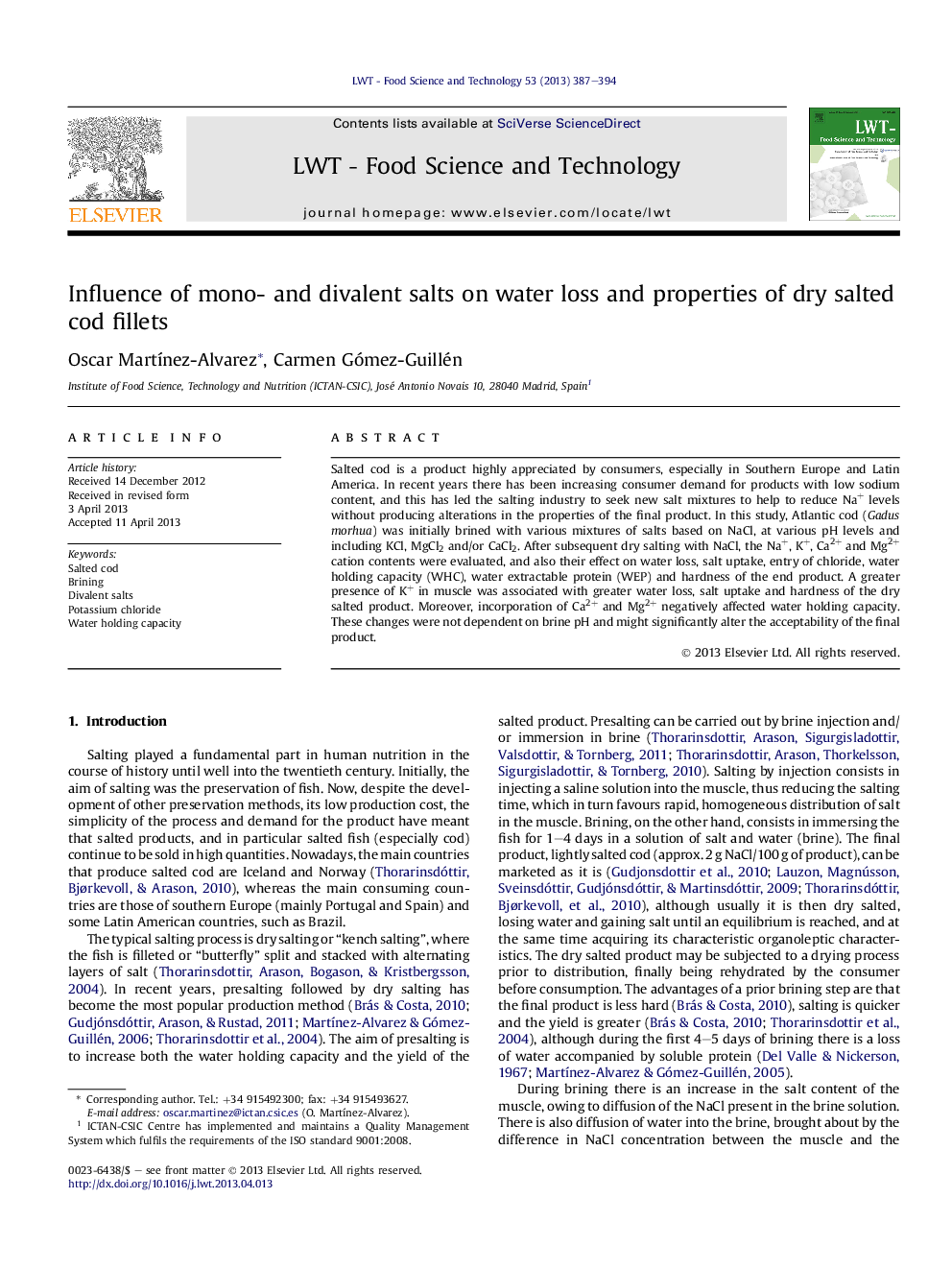| Article ID | Journal | Published Year | Pages | File Type |
|---|---|---|---|---|
| 6404418 | LWT - Food Science and Technology | 2013 | 8 Pages |
â¢Salt uptake and water loss are influenced by cation content in salted muscle.â¢Brining with blends including KCl, MgCl2 or MgCl2 reduced Na content in salted cod.â¢Presence of K+ in salted muscle increased water loss, salt uptake and hardness.â¢Presence of Ca2+ or Mg2+ in salted muscle decreased water holding capacity.
Salted cod is a product highly appreciated by consumers, especially in Southern Europe and Latin America. In recent years there has been increasing consumer demand for products with low sodium content, and this has led the salting industry to seek new salt mixtures to help to reduce Na+ levels without producing alterations in the properties of the final product. In this study, Atlantic cod (Gadus morhua) was initially brined with various mixtures of salts based on NaCl, at various pH levels and including KCl, MgCl2 and/or CaCl2. After subsequent dry salting with NaCl, the Na+, K+, Ca2+ and Mg2+ cation contents were evaluated, and also their effect on water loss, salt uptake, entry of chloride, water holding capacity (WHC), water extractable protein (WEP) and hardness of the end product. A greater presence of K+ in muscle was associated with greater water loss, salt uptake and hardness of the dry salted product. Moreover, incorporation of Ca2+ and Mg2+ negatively affected water holding capacity. These changes were not dependent on brine pH and might significantly alter the acceptability of the final product.
